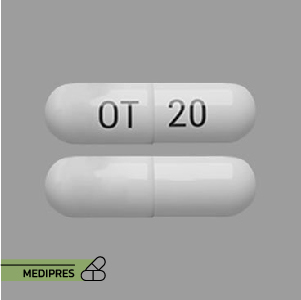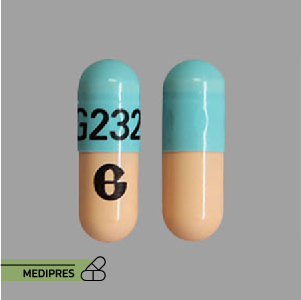
Opdivo
23 June, 2023
Oseltamivir
23 June, 2023Orencia
Generic name: Abatacept
Drug class: Antirheumatics, Selective immunosuppressants
Dosage forms: Injectable IV infusion, single-dose prefilled syringe for SC use, single-dose prefilled ClickJect SC autoinjector
Root of administration: Vein, Subcutaneous
Dose: 50 mg/0.4 mL, 87.5 mg/0.7 mL, 125 mg/mL, 250 mg
Mechanism of action: Orencia (abatacept) is a type of biologic that is given by intravenous infusion or subcutaneous (under the skin) injection which helps prevent your body’s immune system from attacking healthy joints and other tissues and is approved for:
adults with moderately to severely active rheumatoid arthritis
patients aged 2 years and older with moderately to severely active polyarticular juvenile idiopathic arthritis
patients aged 2 years and older with active psoriatic arthritis
the prophylaxis of acute graft versus host disease (aGVHD), in combination with a calcineurin inhibitor and methotrexate, in adults and children aged 2 years and older undergoing hematopoietic stem cell transplantation (HSCT) from a matched or 1 allele-mismatched unrelated donor. Orencia works by helping to block T-cell activation in the immune system and belongs to the class of medicines known as selective T-cell costimulation modulators. Blocking T-cell activation interrupts the cycle that can lead to joint inflammation, pain, and destruction in certain forms of arthritis and acute graft versus host disease. T-cells are part of the immune system that helps to protect you from certain infections and cancers. It is not a cure for any autoimmune disorder and will only treat the symptoms of your condition.
Drug usage cases: Rheumatoid Arthritis (RA): Orencia is FDA-approved for the treatment of moderate to severe rheumatoid arthritis in adults. It is used as a disease-modifying antirheumatic drug (DMARD) to help reduce the signs and symptoms of RA, improve physical function, and slow the progression of joint damage. Psoriatic Arthritis: Orencia is also approved for use in psoriatic arthritis, a chronic condition that affects both the joints and the skin. It can help reduce joint inflammation, alleviate symptoms, and improve overall disease control. Juvenile Idiopathic Arthritis (JIA): Orencia is indicated for the treatment of certain subtypes of JIA in children aged 2 years and older. It can help reduce the signs and symptoms of JIA, improve physical function, and slow the progression of joint damage in pediatric patients.
Drug contra indications: You should not use Orencia if you are allergic to Orencia, abatacept, or any of the components of the intravenous or subcutaneous injection. Before you receive or use Orencia, tell your healthcare provider about all of your medical conditions, including if you have:
any kind of infection even if it is small (such as an open cut or sore), or an infection that is in your whole body (such as the flu) an infection that will not go away, an infection that keeps coming back, or inflammation of your liver due to an infection (viral hepatitis) had a lung infection called tuberculosis (TB), a positive skin test for TB, or you recently have been in close contact with someone who has had TB. Symptoms of TB may include:
a cough that does not go away, fever, weight loss, night sweats. a history of Epstein-Barr Virus (EBV) or Cytomegalovirus (CMV) if you are receiving Orencia for the preventative treatment of aGVHD during HSCT from an unrelated donor, been scheduled to have surgery, recently received a vaccination or are scheduled for a vaccination, a history of a breathing problem called chronic obstructive pulmonary disease (COPD), have diabetes and use a blood glucose monitor to check your blood sugar (blood glucose) levels, are pregnant or plan to become pregnant, are breastfeeding or plan to breastfeed. Some people treated with Orencia have developed skin cancer. Tell your healthcare provider if you have a family or personal history of skin cancer, or if you see any growths or changes in the appearance of your skin during or after treatment.
Side effects: Get emergency medical help if you have signs of an allergic reaction to Orencia such as hives; difficulty breathing; or swelling of your face, lips, tongue, or throat. Some side effects may occur during the injection. Tell your caregiver right away if you feel dizzy, light-headed, itchy, or have a severe headache or trouble breathing within 1 hour after receiving the injection. Orencia may cause serious side effects, including:
infections which may be serious or fatal. Call your healthcare provider right away if you have any symptoms of an infection, such as:
fever, flu-like symptoms, feeling very tired, warm, red, or painful skin, a cough, pain, or burning when you urinate. hepatitis B infection in people who carry the virus in their blood. Your healthcare provider may do a blood test before you start treatment, breathing problems in people with Chronic Obstructive Pulmonary Disease (COPD). You may get certain respiratory problems more often if you receive ORENCIA and have COPD. Symptoms of respiratory problems include COPD that becomes worse, difficulty breathing, or a cough, cancer (malignancies). Certain kinds of cancer have been reported in people using Orencia, including skin cancers. It is not known if Orencia increases your chance of getting cancer, Cytomegalovirus (CMV) and Epstein-Barr Virus (EBV) infections in people receiving preventative treatment of aGVHD during unrelated HSCT. Your healthcare provider will monitor you for 6 months after transplantation and may treat you with medicines to help prevent CMV and EBV infection if needed.
Warnings: Hypersensitivity reactions, including anaphylaxis, have occurred. Orencia carries a risk of serious infections. People with a history of recurrent infections or with underlying conditions that predispose them to infections (such as a weakened immune system, COPD, or diabetes) are more at risk. Using Orencia with a TNF antagonist can increase your infection risk. Your doctor should screen you for viral hepatitis and latent TB infection before starting treatment with Orencia. If you test positive for TB your doctor will initiate TB treatment. All your childhood vaccinations and other age-appropriate vaccinations should be up to date before starting Orencia. Live vaccines should not be given concurrently or within 3 months of discontinuation. Orencia may blunt the effectiveness of some immunizations. The risk of respiratory side effects may be more common in patients with COPD (Chronic Obstructive Pulmonary Disease). There is a risk of cytomegalovirus (CMV) and Epstein-Barr Virus (EBV) reactivation in patients treated for aGVHD prophylaxis. It is not known if Orencia is safe and effective in children less than two years of age.
Use during pregnancy or breastfeeding: It is not known if Orencia can harm an unborn baby.When your baby is born talk to your healthcare provider before your baby receives any vaccines. It is not known if Orencia passes into breast milk. Talk to your healthcare provider about the best way to feed your baby.



